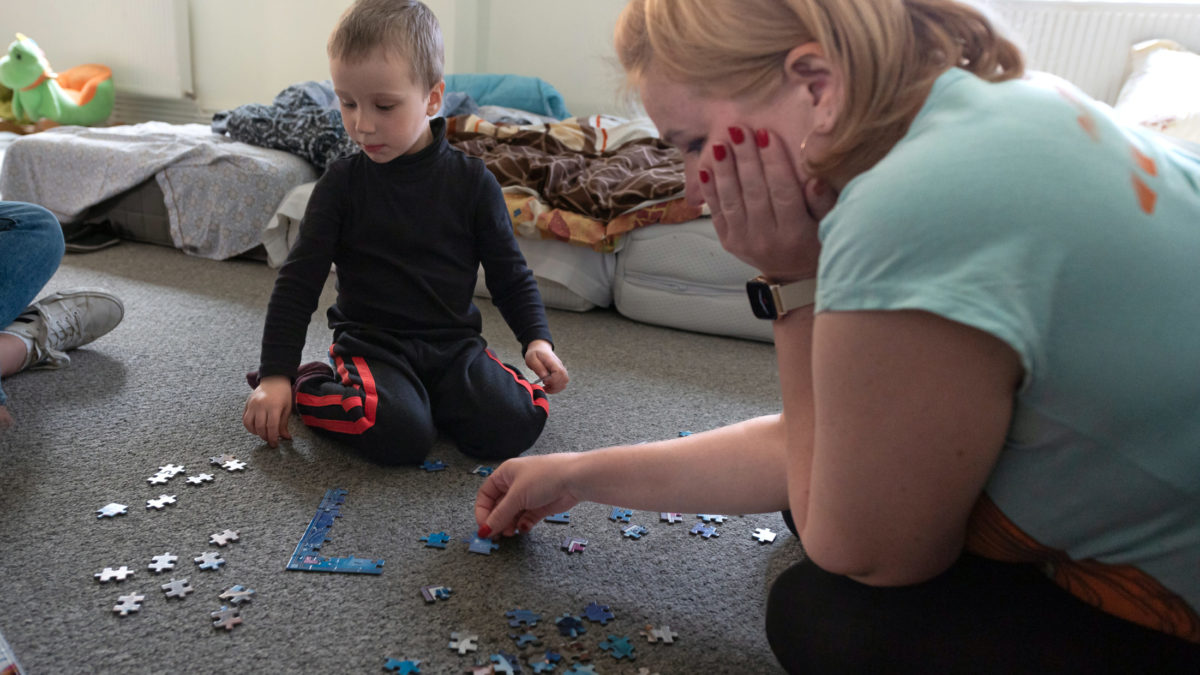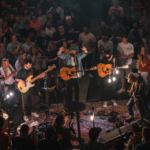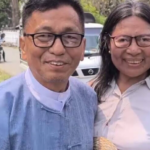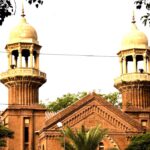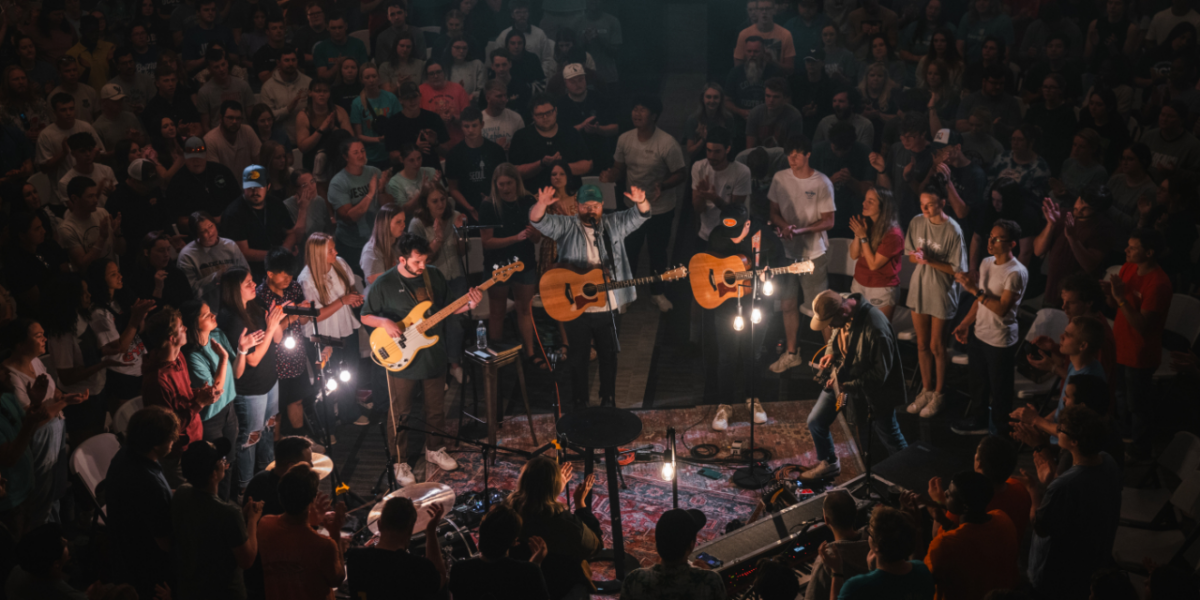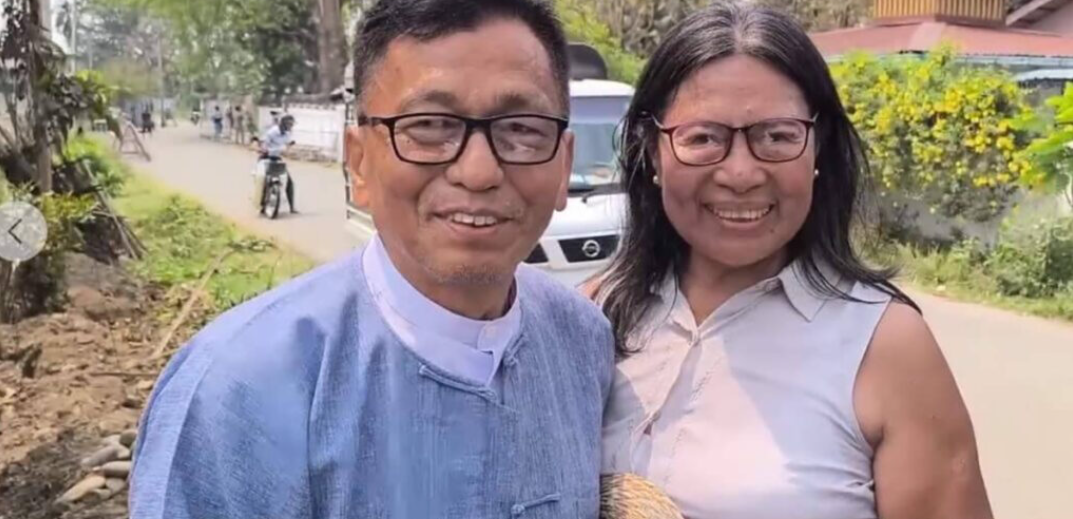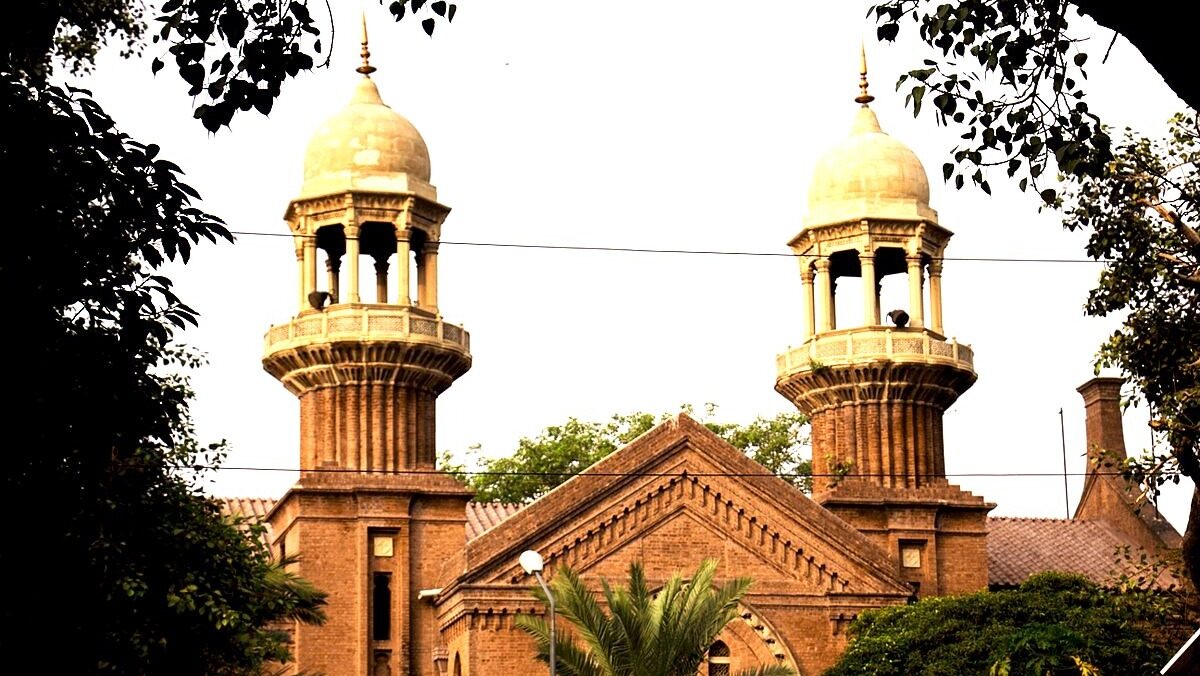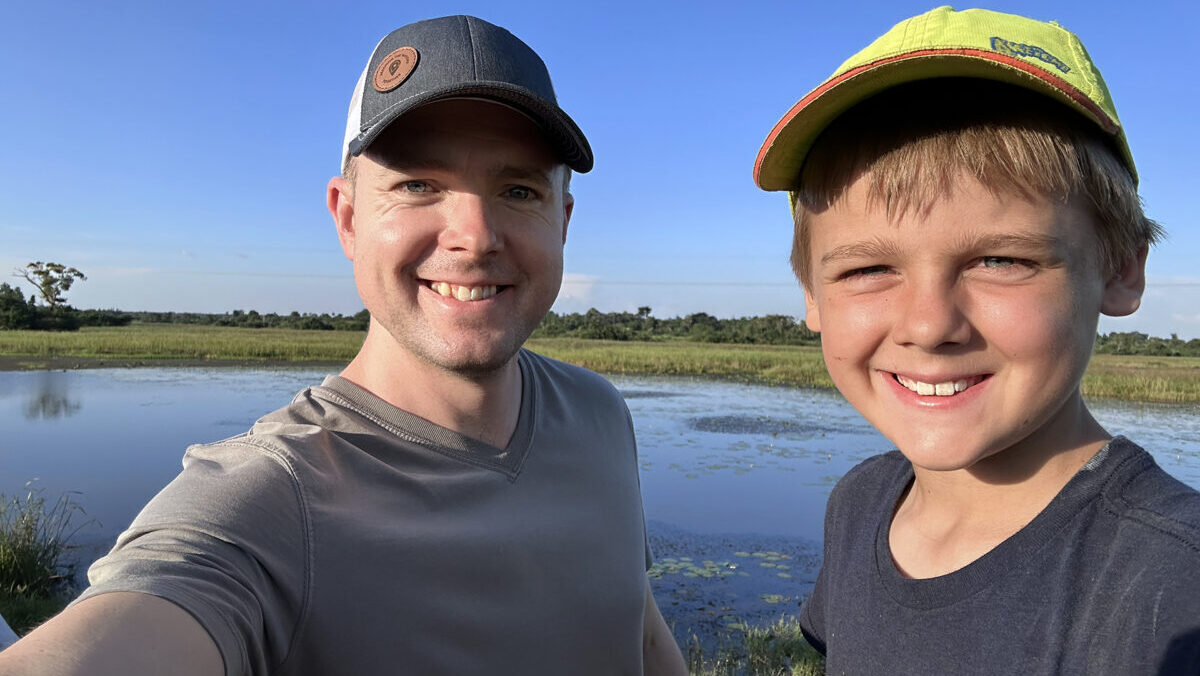Den and Dimi are the same ages as two of my nephews — two and four. They also look and act like my nephews – blond hair, blue eyes, with a childlike joy and the desire to capture the attention of adults. What made these four boys so similar made their differences much harder for my heart to handle.
Den and Dimi are Ukrainian refugees, displaced by the war. They are living in a church along the border of Romania and Ukraine with hundreds of other refugees. All around them was chaos, yet here we sat on the carpeted floor of the church basement, working on a puzzle.
“Oh, this is a Frozen puzzle!” I exclaimed, referring to a popular animated movie. Den nodded eagerly.
“Olaf, Anna and Elsa,” I mused as I searched for the pieces for Anna’s hair, and Den distractedly accepted or rejected the corner pieces his mom found for him.
A few minutes later, I sat cross-legged in front of Dimi, ooh-ing and ahh-ing over mechanized helicopter blades.
I voiced the same “oohs” and “ahs” that morning to my nephew through a video chat app. My nephew sent a video to show me his new suitcase. My nephew wanted me to say “ooohhh” when he showed it to me.
Den and Dimi also had suitcases — though not for a family vacation. The boys and their parents, Alexander and Victoria, fled Ukraine with a few bags. Their village was pummeled. I’m glad the boys’ childlike innocence, still seemed intact. That is something no child should ever have taken from them.
When I looked at Den and Dimi, I pictured my nephews; my nephews could have been the ones fleeing a scarred nation. My nephews could have very nearly escaped with their lives. My nephews could be playing with puzzles and helicopters in a church basement without knowing where they might spend the remainder of their childhood.
Personalized view of the war
Den and Dimi personalized the war in Ukraine for me.
This Ukrainian family stopped at an aid station organized by Romanian Baptists at the border of Moldova and Romania. At this station, Romanian Baptist David Vasiliu directed the family to Casa de Rugacuine, a Romanian Baptist church in the city of Iasi. David’s father, Florian, pastors Adora Christi, a church heavily involved in helping Ukrainian refugees.
On our visit to the church, Florian gave Alexander and Victoria a children’s Bible and a book about dealing with grief.
“I’m sorry for what is happening in Ukraine. We don’t know why it is happening. We would like to offer our love to you because Jesus loves you,” Florian told Alexander and Victoria.
Prayers for the days ahead
We formed a circle and prayed. Den came and stood in the middle of the circle, looking up at all the adults with their eyes closed — trying to catch one of us peeking. I had my eyes half-closed, and I winked at him and smiled.
To my knowledge, Alexander and Victoria are not Christians. They hope to move to Australia. I pray they get connected to a church. These connections are a crucial part of the assistance Romanian Baptists provide. Refugees pass through Romania to travel to other countries, and Florian, David and other Romanian Baptists are connecting them to Baptist churches throughout Europe and beyond so they can continue to be shown the love of Jesus and cared for by the body of Christ.
I’d like to challenge us all to think of the two and four-year-olds in our lives when we hear updates on the war in Ukraine. Think of their faces. I promise it will change everything.
EDITOR’S NOTE — This story was written by Caroline Anderson and originally published by the International Mission Board.

